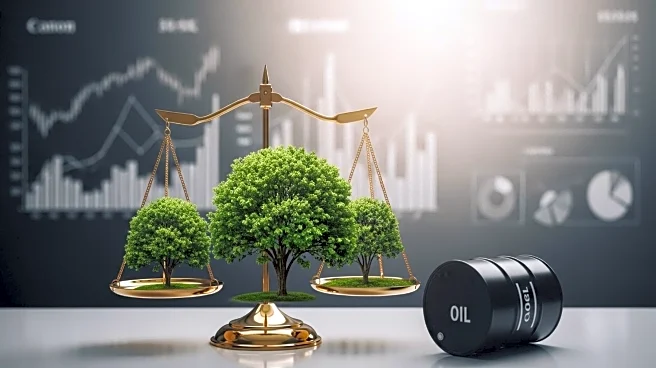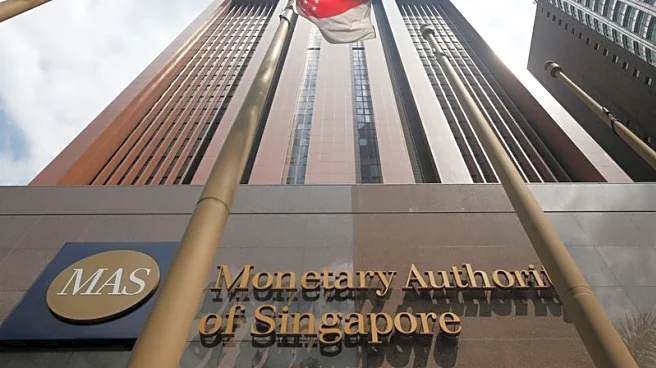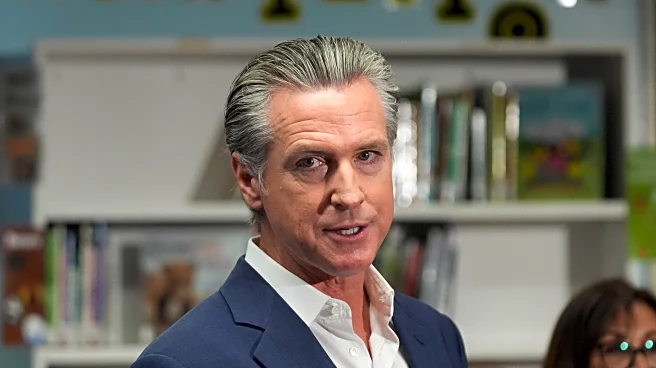What's Happening?
Finance Watch has released research indicating that major banks worldwide have over $1.6 trillion in credit exposures to fossil fuel industries, posing significant climate-related risks. The organization proposes a climate systemic risk buffer to mitigate these risks, suggesting that banks retain a portion of profits to fund additional capital without affecting their lending capabilities. Julia Symon, Head of Research and Advocacy at Finance Watch, highlights the mispricing of fossil fuel assets as a critical issue, likening it to the subprime mortgage crisis of 2008. The European Central Bank has warned that a disorderly transition to a green economy could lead to substantial losses for banks with high-emission firm exposures.
Why It's Important?
The proposal for a climate risk buffer is crucial as it aims to prevent a potential financial crisis stemming from mispriced fossil fuel assets. By implementing this buffer, banks can become more resilient to climate-related financial shocks, protecting the broader economy and taxpayers. The initiative underscores the need for banks to incorporate climate risks into their models, which could lead to more sustainable investment practices. Policymakers face pressure to act swiftly to avoid a disorderly market correction that could adversely affect citizens and the economy.
What's Next?
The next steps involve policymakers considering the implementation of the proposed climate risk buffer. This could lead to regulatory changes requiring banks to adjust their risk models to account for climate-related exposures. The banking sector may need to adapt to new standards that prioritize sustainable investments, potentially influencing global financial practices. Stakeholders, including environmental groups and financial institutions, are likely to engage in discussions to shape the future of climate risk management in banking.
Beyond the Headlines
The proposal highlights the ethical responsibility of banks to address climate change by reassessing their investment strategies. It raises questions about the long-term sustainability of fossil fuel financing and the role of financial institutions in driving the transition to a green economy. The initiative could lead to cultural shifts within the banking industry, promoting a more proactive approach to environmental stewardship.












